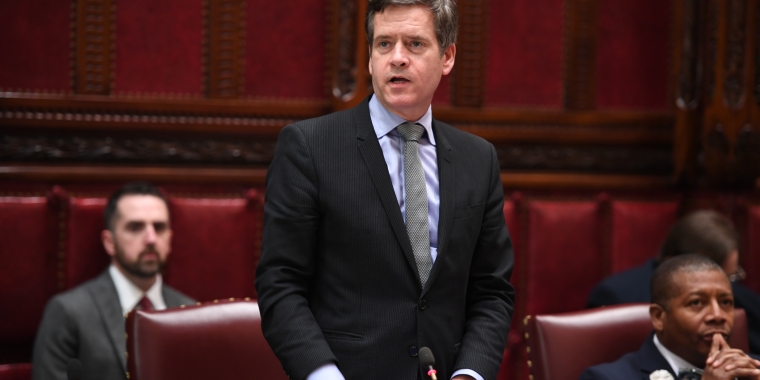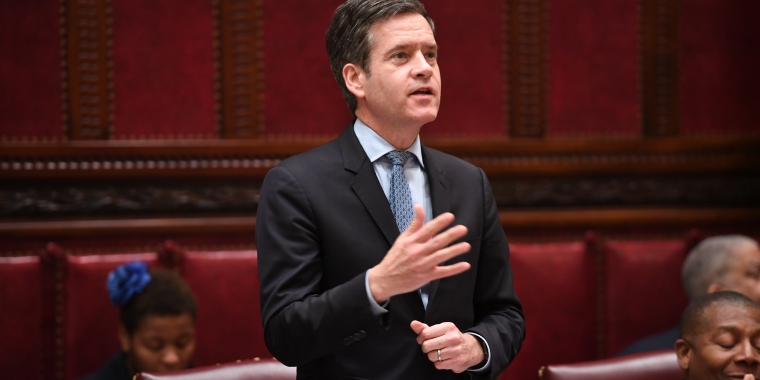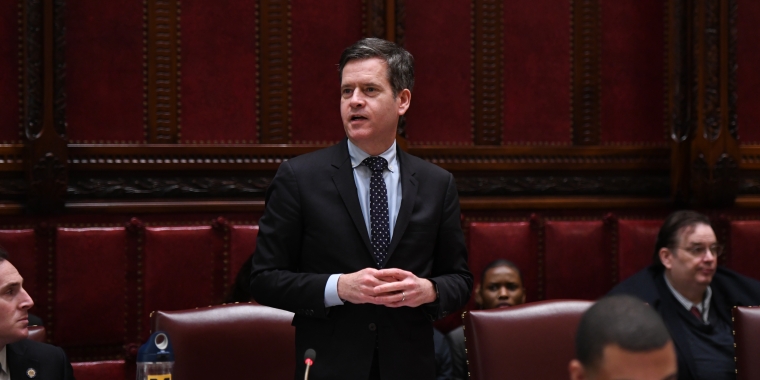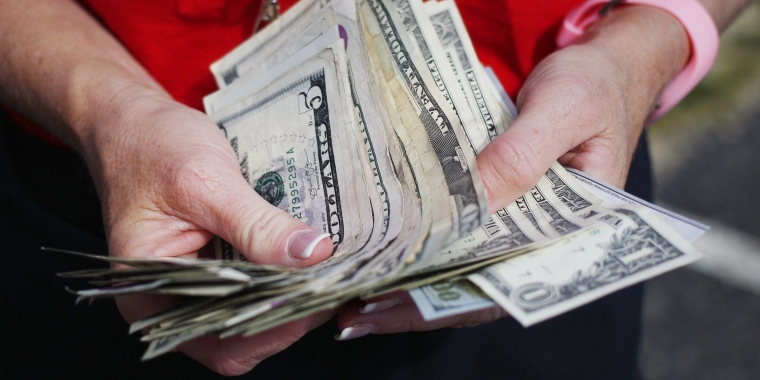
Testimony of Senator Hoylman-Sigal and Assembly Member Simone to the New York City Council Committee on Consumer and Worker Protection Regarding the Use of Facial Recognition Technology by New York City Businesses
February 24, 2023
Thank you for the opportunity to submit testimony to the New York City Council regarding the use of facial recognition technology by New York City businesses.
State Senator Brad Hoylman-Sigal represents the 47th Senate District, which runs from Stonewall Inn to 103rd Street along Eighth Avenue, and includes part of Madison Square Garden. Assembly Member Simone represents the 75th Assembly District, covering much of the same area.
In the Senate, Senator Hoylman-Sigal carries multiple bills regulating the use of facial recognition technology. We are deeply concerned about the growing use of facial recognition software in public spaces by private entities. We are grateful to the Council for considering this weighty issue.
Facial recognition technology has been proven to be inaccurate and discriminatory and can lead to the misuse of personal biometric data without consent. A 2019 analysis by the National Institute of Standards and Technology of 189 facial recognition algorithms — the majority of the industry — found that this technology erroneously identifies Black and Asian faces 10 to 100 times more often than it does white faces. The report also discovered that women, the elderly, and children, too, were more likely to be falsely identified. These discriminatory failures overlap. Women of color, and particularly young Black women, have some of the poorest identification accuracy rates of any demographic.
Other research has found that these algorithms also misidentify trans men as women 38% of the time, and non-binary people 100% of the time. The technology also poses grave privacy concerns, as individuals’ face information is usually collected without their consent, cannot be encrypted, and is therefore vulnerable to data security breaches.
For all these reasons, facial recognition software should be used sparingly and cautiously. And yet, facial recognition technology is already being deployed in an array of concerning contexts.
For example, members of this committee may be aware of recent controversy around Madison Square Garden Entertainment’s disturbing use of facial recognition software to identify and eject patrons from their entertainment venues who they deem to be hostile to the legal or financial interests of MSG. MSG Entertainment has repeatedly deployed this tech against attorneys who represent clients suing MSG — and even against people working at the same firms who have nothing to do with those cases.
This practice is deeply worrying because it sets a precedent of private companies chilling free speech by denying access to those that disagree with MSG’s owner, James Dolan. This policy also violates the privacy of entertainment patrons, who have no idea their biometric information is being collected on a casual sports outing.
This policy is clearly not about public safety. This is retaliation against MSG’s perceived legal enemies, chilling speech and access to the courts. Where does this end? Journalists? Labor? Banning someone from going to their local grocery store? James Dolan, the owner of MSG Entertainment, says the Garden can do whatever it wants because it’s on “private property” and that MSG has a right to “defend itself.” To that we say: if it’s your private property, why don’t you pay property taxes on it? New Yorkers subsidize Madison Square Garden to the tune of $43 million every year via tax breaks. So New York taxpayers are directly funding these abusive tactics.
Facial recognition technology allows MSG Entertainment to retaliate and potentially discriminate at a scale that would not be possible without the technology. This flawed technology and the manner in which it is deployed is an attack on all of our privacy and civil liberties.
MSG has refused to change its facial recognition practices in response to our and other elected officials’ requests. That’s why Senator Hoylman-Sigal has introduced a bill to add sporting events — like Knicks games — to the long-standing law that prohibits wrongful refusal of admission in places of public entertainment. It’s already illegal to deny admission to Broadway musicals, public talks, and concerts. But there’s a loophole in New York’s statute that exempts sporting events from this rule. The senator’s bill would close that loophole and make it clear that banning people from any public event is not acceptable in New York.
We thank the committee for investigating this use of facial recognition by private businesses, and would urge you to also investigate and highlight similarly problematic uses which we are also hoping to address in Albany, such as the use of facial recognition by law enforcement and residential landlords. Landlords already wield significant power over tenants by controlling their access to stable housing. Installing a facial recognition system on residential premises and then requiring tenants to consent to the use of such a system to remain in the building is tantamount to evicting those who object to having their sensitive personal data stored and used by a landlord. Senator Hoylman-Sigal is also considering legislation that would ban the use of biometric technology more broadly from places of public accommodation.
Thank you for the opportunity to speak today. We are hopeful that we can make progress on this issue on the state level, and we appreciate your partnership in addressing these harms on the city level as well
Share this Article or Press Release
Newsroom
Go to NewsroomSenate Majority Protects New Yorkers from “Revenge Porn"
February 28, 2019

State Senate Pledges to Protect LGBTQ Homeless Youth with Unanimous Vote
February 27, 2019

New York Moves Toward Full Ban on Flavored E-Cigs
February 27, 2019

A Chance to Get Big Money out of New York Politics
February 22, 2019
